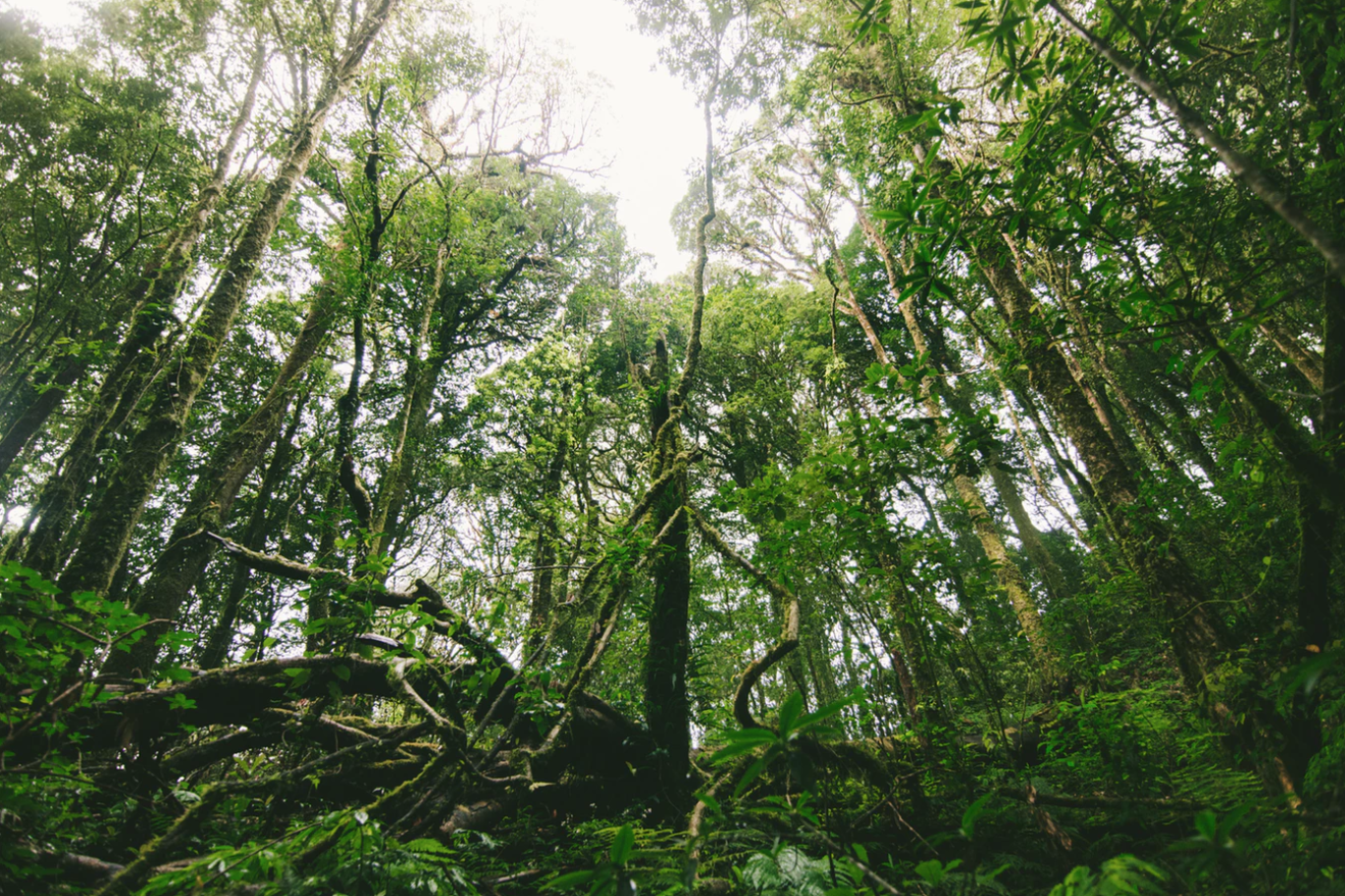If there’s any time that we should focus solely on ourselves, it’s when we are on retreat, no?
Retreats, and travel in general, are the rare chances to step away from our regular lives and everyday responsibilities to focus on the person who most often goes neglected: ourselves! When traveling, why not go to all the places we want to visit? Why not eat all the food we want to eat, and experiences all of the world’s most dreamy wonders? Sure, as we progress through our lives, our vacationing priorities change from solo adventures to romantic getaways, then to family destinations and, eventually, ways to enjoy life and travel in our later years.
— but our parents, spouses and children are not the only people affected by our travel decisions, not by a long shot.
Traveling with a conscience is what happens when one realizes how far your personal butterfly effect extends, especially when galavanting across the planet with abandon. There is inherent value in mixing cultures and learning about different populations of people, but when examining our motives behind our travel, we must take into account all of our values. If we recycle and care for the planet when at home, then why should we suddenly forget (or make excuses) when we step upon a plane? If we petition for and support human rights from the comforts of our hometown, then our travel plans should also reflect these values. So often, our focus is on me, me, me, rather than how our choices affect people we might never — and likely will never — meet. For that, we can’t be blamed. It’s only human, and time off from work does not come freely.
For those who argue that their travel choices have little effect on the earth, think again: a 4,000 mile flight might require as much as 20,000 gallons of gasoline. The numbers are staggering — and the almost too-obvious answer would be to stop traveling altogether. The reality is, for those who love travel and self-expansion, not traveling isn’t an option. If you’re landlocked for 11 months out of the year, how else are you going to soothe that surf itch? There’s no other way to touch different cultures than to hop into a car, boat or aircraft… but this awareness of our effect on the planet doesn’t have to a be painful side effect. By being knowledgable, traveller can feel empowered to experience the world in the way that they want, while ensuring there’s still a world for future generations to enjoy.
If you have a gypsy’s soul and feel so at home on the earth that it doesn’t matter where are upon it, we must be aware of the reality of our choices. Travel is worth so much, but we must do what we can to minimize our impact on the health of our planet and the general goodness of humanity. Here are a few things to consider when traveling or choosing a retreat:
The Earth
The earth is, unequivocally, affected by our actions — and it is no different when we’re traveling. Nowadays this fact isn’t often disputed, and thankfully it’s becoming commonplace to avoid plastic straws and other disposables that may harm wildlife as pollution, or in a landfill. It’s worth arguing that straws alone is not enough to save our planet, but for most of us, convenience trumps eco-friendliness when it comes to the extremes of travel. After a long-haul bus ride from one city to the next, is a plastic container going to stop us from reaching for that sandwich from that roadside convenience stand? I would say, likely not!
The same goes for take-out containers, straws, cutlery and plastic bags; in our hurry to taste and experience the world’s culture, many of us go through single-use plastics at an alarming rate. In countries that don’t have advanced water systems, it’s necessary to purchase plastic water bottles just to keep yourself adequately hydrated. If fact, I have heard many people, express alarm at the sheer overuse of plastic in developing countries and the severe lack of effective recycling programs, feeling powerless to do anything about it.
Many countries that are still developing do not yet have the infrastructure — or the priorities — needed to make ‘going green’ their #1 initiative. They’re not worried about the plastic waste, because there are so many other, more immediate needs. So, instead of looking at what others can do better, here’s what we can do: use social media to educate our circles about the plight of the earth, and at the same time, find ways to limit your use of plastic with a little bit for foresight. Rather than buying convenience food, it can be a fulfilling experience to meal prep and carry your food in reusable tubs (or ask your hotel to do it for you). Travel with a bamboo cutlery set with chopsticks, forks, knives and straws so that you don’t automatically reach for plastic.
One of the most fun ways to respect our planet it to organize beach clean-up events. This is possible in two ways: planned or impromptu! If we’re at the beach, we like to get into the habit of leaving with 5 or 6 pieces of trash to throw away or recycle. If you have more time, or are traveling on a SwellWomen retreat, considering partnering up with a local organization and get people out there, picking up trash!
The Animals
As far as living things on planet earth, animals have had a pretty rough go at it — and it’s not by any fault of their own. Humans have found a way to exploit or threaten almost every animal species, from food production to clothing to habitat destruction and entertainment like zoos and circuses.
It’s not just the animals who are exploited, either. A human’s innate love for animals is so often utilized by companies to sell experiences with the creatures that we adore the most: a photo with a tiger cub; swimming with the dolphins; riding a horse and carriage through old-timey streets or riding on the back of an elephant or a camel. It’s not as cute as it seems, so don’t believe what you’re told. Oftentimes these wild animals are distressed by being around humans and must be sedated in order to be handled. While it’s fun to be around animals, but it’s much more fun to see them safe, in their natural environments.
When we are researching destinations for travel or retreats, there’s another important question to ask ourselves: who’s home was destroyed in the journey to make a place accessible? The answer, as you’ll see, is different in every situation. The delightful lodges that are sit in the remote corners of the world were once a construction sites, ones that needs roads and highways in order to flush it with supplies and paying tourists — however, many venues are designed and built to respect nature and bring humans closer in contact with mother earth. It’s a fine line between appreciation and exploitation.
In cities, habitat destruction is not such a big problem, but urban sprawl is a sign that ecosystems are being razed down to make room for more visitors. Cities also have huge stray dog and cat populations that are endangered hunger, disease and busy roads. The definitive solution to this is spaying and neutering, so if you have the extra cash, maybe sponsor one or two — and if you find a dog or cat that you love, maybe consider taking it home!
The People
If travel is good for anything, it’s opening our eyes to different ways of living. It brings us face-to-face with people who live with way more than us, as well as those who live with way less. While it’s great to oogle at the mansions and wealth, many times, it’s impossible to ignore the rampant poverty in some of our favorite destinations — it’s hard to understand how much sadness can lie just underneath a beautiful surface.
Though certainly concerning, you can feel a little better knowing that for many countries with lower GDP’s in the world, money does not equal happiness. Different cultures have different priorities, and many people who appear to have very little might be very happy indeed.
However, if an area’s indigenous people are being exploited in any way, they are certainly not happy about it. People who do fair work deserve a fair wage and more often than not, field hands, cooks, waiters and other labors are paid way less than their fair share. This can be found any place where jobs are in high demand, but African safaris are notorious for taking their profit — which is incredibly large, as once might imagine — right out of the hands of the locals, who do all of the work, and moving it abroad.
The trusted fair-trade label exists for products you can buy, but no such thing exists to review travel experiences or hotels, so to be informed you must use your network. Which employers respects their workers and which do not is no secret, so don’t be afraid to ask! You’ll find that people can become quite vocal about this subject, when given power with their voice. It’s also a good idea to stay away from the world’s most heavily touristed destinations, where ideas about human rights can get quite fuzzy. There are so many vivid and interesting places to visit that are off of the main tourist track, and a lot of the time, professionally organized retreats can bring you right to them.
If we’re coming from the west, the distant cultures of the world may seem so dazzling that one might want to take a little bit for themselves. While we’re traveling and appreciating a group of people and their culture, we must take care that we aren’t contributing to cultural appropriation. This is when a person takes on another’s culture by removing it from its historical context and inherent value. This is done often with spiritual objects and clothing, such as Native American headdresses and representations of the Buddha. When buying souvenirs and bringing home memories of the culture, ask yourself if this thing/memory truthfully represents the place — or if it’s a stereotypical, 2D version of it.
The beauty of a country doesn’t just lie in what makes it ‘cool.’ It comes from what makes it real.
Travel teaches us a lot about balance by creating a beautiful dichotomy between selfishness and selflessness; we are able to learn about ourselves by learning about each other. But, with so many ethical factors to consider, what is the best way to enjoy travel? The answer lies in following our gut and doing research — or we can defer to the experts. Retreats are custom-built travel experiences to appeal to a certain focus or intention, and these range as far as the imagination can wander (but most popular are wellness-focused retreats). Travelers can go on trips to their favorite destinations (or even remote ones they have yet to hear about) and experience that country through the lens of their favorite activity, like yoga or surfing. Retreats are great solutions to the ethical dilemma of traveling because travelers can get in-depth cultural experiences while simultaneously respecting the land, the people, and themselves.
Find a retreat provider that intimately know the destinations in which they travel to, and who thoroughly vet their venues and providers for their quality. This takes the work off of your shoulders, and places it into the hands of people who you trust. Remember: we all love to travel, and we want to see our planet thrive, so we all must be in this together






Leave a reply